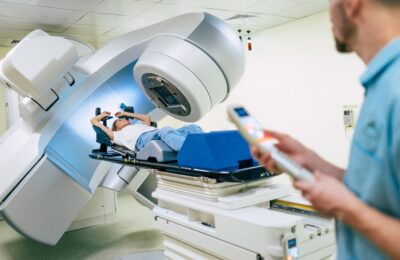
There are many STD tests available, depending on what you need to be checked for. Doctors will be able to tell you which test is right for you. Check the packages and what to prepare for your STD testing on this page: https://healthclinicgroup.com/std-testing/.
Now, when you check in for STD testing, first the doctors will want to know where the infection was contracted and how it was transmitted. They might also ask if you have experienced any symptoms or if your partner has; this information can narrow down the STD test possibilities.
Many tests can be done using blood samples, urine samples, or swabs of infected areas (genitals/rectum). Depending on your symptoms and suspected disorder, your doctor may perform a pelvic exam as well. For women, one of the most common tests is the Pap test, which screens for cervical cancer. Another example is an HIV test, which screens for the virus that causes AIDS.
For men, doctors are more likely to perform urine tests, genital swabs, or blood tests. If you have a vagina, your doctor may design a test that screens for both STDs and pregnancy. This is not an exhaustive list of all the STD tests available. They will vary by location, insurance coverage, and symptoms expressed.
How to get Tested for STDs—where can you go, and what do you need to Bring?
If you visit your doctor and ask for STD testing, they will schedule the appropriate tests and items needed for each type. If you already know what test(s) you would like done, it’s best to bring this information with you when visiting a doctor so they can be sure all of the correct tests are performed.
Each location has its own requirements regarding payment and sample submission. You may need an official form of identification or insurance card to use their facilities. Be sure to familiarize yourself with the process before getting tested, so there aren’t any surprises when it’s time to go in. Depending on where you choose to get STD testing, here is some general advice:
- Visit a healthcare provider who takes your health seriously
- Check out the waiting room and bathroom before entering or using them
- Call ahead to confirm that you need a doctor’s note for school, work, etc.
- Bring an updated copy of your STD test results if possible (if done elsewhere)
Please ask your doctor any questions you may have regarding getting tested. They will be able to tell you what specific tests are right for you and how they should be performed.
What are the Benefits of Early Detection, and how will it improve your Health?
Early detection is beneficial because it can lead to effective treatments and even cure certain STDs. For example, if syphilis or HIV is detected early enough, then doctors can prescribe medications that reduce the risk of transmission and prevent further spread. However, if these diseases go untreated and undiagnosed for too long, they can lead to severe damage such as organ failure or even death.
By getting tested, you reduce the risk of further transmitting STDs and make yourself a less likely candidate for any dangerous effects. Knowing your status enables you to take measures to protect those around you and ensure that your treatment regimen is working effectively if an STD does turn up positive.
How to talk to your Doctor about STD Testing and get the most out of your visit
If possible, write down a list of all the symptoms you’ve been experiencing, so everything runs more smoothly on the day of your appointment. If it’s not possible, discuss this with your doctor beforehand to know what to expect.
You may not be familiar with all the tests available, so bring along a list of questions or concerns you would like addressed. You can also ask them to explain anything that doesn’t make sense and ensure that you fully understand each test and its purpose before agreeing to take it. You should try to ensure that your doctor is aware of;
- All drugs/medicines taken: This is important because some medications can affect STI screening results, meaning that the results may not be accurate.
- Allergies/Intolerances to medications: If you have any allergies, your doctor should provide the necessary precautions to ensure your safety.
- Known Medical Conditions: Any medical conditions or illnesses can affect certain tests and their results, so it’s important that your doctor knows about all conditions you have been diagnosed with.
If no previous sexual partners have been found, then a risk assessment will need to be performed by the doctor. This is where they figure out if there are any obvious risks or likelihood of contracting STDs from this point on—i.e., unprotected sex, multiple partners, etc.). In some cases, a blood test may be required for HIV. Once negative results return from your STD testing, you should abstain from sex for at least two weeks before having protected sex with any new partner(s). This period of time is necessary to give the medications sufficient time to get rid of any potential STDs that could have been passed on.
How to Know if the Tests are Accurate
If you start noticing new symptoms, even after receiving negative results from STD testing, then check back in with your doctor to ensure that everything is still okay. Make sure they haven’t missed anything and double-check any medications or treatments to make sure they are safe and effective.
STD Tests should be done regularly to avoid any threat of disease-causing damage to your body. Also, it should be remembered that early detection helps in preventing the diseases from spreading further. The best way to test yourself is by visiting a nearby clinic near you for conducting various STD Tests.
Final Thoughts
Going through the process of STD testing can be daunting, but educating yourself about all the available options is important. Some tests are more invasive than others, so knowing what you are getting into beforehand can help reduce anxiety and stress when it comes time to face your fears.
Know which tests are right for you and make sure they are performed properly to get accurate results. Always remember that if something doesn’t feel right, it isn’t. There is always another option or other places you can go for help.
At The Health Advisory Clinic, we offer confidential STD testing services in the comfort of our One Raffles Place location in Singapore. We test for a variety of STDs, including but not limited to HIV/AIDS, Syphilis, Herpes, Gonorrhea, Chlamydia, and Hepatitis. You can get more information on our website or by calling (+65) 6226 6442.
The Health Advisory Clinic – Women’s Health | STD/HIV Testing
1 Raffles Pl, #04-49, Singapore 048616
+65 9886 6442
https://healthclinicgroup.com/














